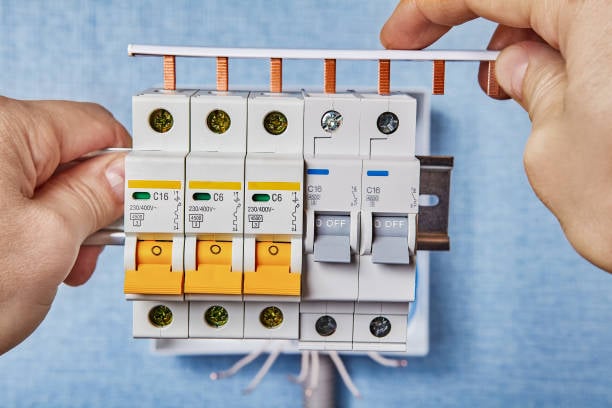1. Introduction to Circuit Breakers
Circuit breakers are essential components in electrical systems that protect them from overcurrents and short circuits. They automatically interrupt the flow of electricity when a fault occurs, preventing damage to equipment and ensuring the safety of individuals. This article explores various Types of Circuit Breakers commonly used in residential, commercial, and industrial applications.
2. Thermal Circuit Breakers
Thermal circuit breakers are one of the most widely used types. They rely on a bimetallic strip that bends when heated by excessive current. This strip mechanically opens the circuit, interrupting the flow of electricity. Once the strip cools down, it returns to its original position, allowing the circuit to close again. Thermal circuit breakers are commonly found in appliances, power strips, and other low-voltage applications.
3. Magnetic Circuit Breakers
Magnetic circuit breakers operate based on the principle of electromagnetism. They use a solenoid coil that generates a magnetic field. When an overcurrent occurs, the increased magnetic field strength pulls on a metal lever, causing the circuit breaker to trip. Magnetic circuit breakers are commonly used in residential and commercial applications, providing reliable protection against short circuits and overloads.
4. Residual Current Circuit Breakers (RCCBs)
RCCBs, also known as ground fault circuit interrupters (GFCIs), are designed to protect against electrical shocks caused by ground faults. They monitor the current imbalance between the live and neutral conductors. If a fault is detected, the RCCB quickly interrupts the circuit, preventing potential harm. RCCBs are commonly installed in areas where water and electricity may come into contact, such as bathrooms, kitchens, and outdoor outlets.
5. Arc Fault Circuit Interrupters (AFCIs)
AFCIs are specialized circuit breakers that provide protection against arc faults, which can lead to electrical fires. They detect the unique waveform patterns created by arcing faults and promptly interrupt the circuit. AFCIs are commonly used in bedrooms, living rooms, and other areas where electrical fires are more likely to occur due to the presence of flammable materials.
6. Miniature Circuit Breakers (MCBs)
MCBs are compact circuit breakers commonly used in residential and commercial applications. They combine the functions of both thermal and magnetic circuit breakers, providing protection against overloads and short circuits. MCBs are available in different current ratings and trip characteristics, making them versatile for various electrical installations.
7. Molded Case Circuit Breakers (MCCBs)
MCCBs are larger circuit breakers typically used in industrial applications and higher voltage systems. They offer higher current ratings and can handle larger fault currents. MCCBs are designed for durability and can withstand harsh operating conditions. They provide reliable protection against short circuits, overloads, and ground faults in industrial settings.
8. High-Voltage Circuit Breakers
High-voltage circuit breakers are specifically designed to protect high-voltage electrical systems, typically above 1000 volts. They are essential in power transmission and distribution networks, ensuring reliable and safe operation. These circuit breakers use different technologies such as air, oil, or vacuum to interrupt the high-voltage currents and protect the equipment.
9. Digital Circuit Breakers
With advancing technology, digital circuit breakers are becoming more prevalent. These circuit breakers incorporate advanced electronics and digital control systems to provide enhanced protection and monitoring capabilities. Digital circuit breakers can detect and analyze various electrical parameters, allowing for precise protection and real-time data monitoring.
10. Specialized Circuit Breakers
In addition to the aforementioned types, there are specialized circuit breakers designed for specific applications. These include circuit breakers for solar power systems, electric vehicle charging stations, and data centers. These specialized circuit breakers are tailored to meet the unique requirements and safety standards of their respective applications.

